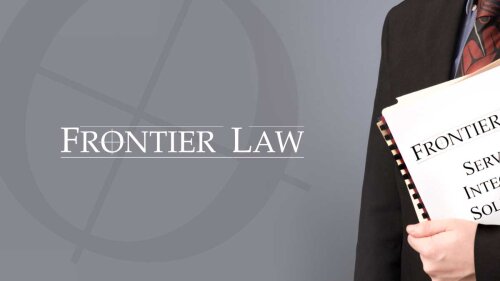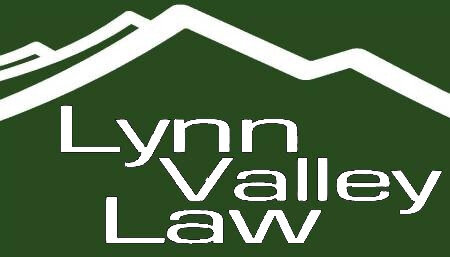Best Real Estate Contracts and Negotiations Lawyers in Canada
Share your needs with us, get contacted by law firms.
Free. Takes 2 min.
Free Guide to Hiring a Real Estate Lawyer
Or refine your search by selecting a city:
List of the best lawyers in Canada
About Real Estate Contracts and Negotiations
Real estate contracts and negotiations encompass the legal frameworks and processes involved in the buying, selling, leasing, or transferring of real estate. Whether you're purchasing your first home, leasing commercial space, or engaging in more complex deals involving property development, navigating these transactions requires a keen understanding of legal obligations and rights. Contracts in real estate are binding legal agreements that set out the terms and conditions of a deal and often involve significant financial investments and long-term commitments.
Law in Canada: A Brief Overview of Real Estate Contracts and Negotiations
In Canada, real estate law is governed at both federal and provincial levels, with each province having its own set of regulations. Generally, real estate transactions must comply with property law, contract law, and specific statutory regulations that apply to various types of properties. It's important to note that the rules and practices can vary widely, so localized expertise is beneficial.
Real estate negotiations involve bargaining to reach mutually agreeable terms regarding price, conditions, and other aspects of a real estate transaction. While many deals are straightforward, others may require detailed negotiations, especially when disputes arise or the deal involves large or intricate properties.
Why You May Need a Lawyer
There are numerous situations where legal expertise might be necessary in real estate contracts and negotiations:
- Complex Transactions: Large commercial deals, cross-border transactions, or developments involving multiple stakeholders may require legal support to ensure all aspects comply with the law.
- Dispute Resolution: When disputes occur over contract terms, ownership, or boundary issues, a lawyer can help mediate or litigate to resolve these issues.
- Contract Drafting and Review: Lawyers help to draft clear, enforceable contracts and review existing ones to ensure they accurately reflect the agreed terms and protect your interests.
- Negotiation Support: Lawyers bring expertise in negotiating favorable terms and conditions in real estate deals.
- Legal Compliance: Lawyers ensure that all transactions comply with the relevant laws and regulations, thus avoiding potential legal complications or penalties.
Local Laws Overview
Key aspects of Canadian real estate law that are relevant to contracts and negotiations include:
- Provincial Variations: Real estate laws vary by province, with unique requirements for registration, taxation, and zoning.
- Land Registration Systems: Most provinces use the Torrens system, ensuring public registry ownership, while others follow a deed registration system.
- Consumer Protection: Laws protect consumers in real estate transactions, requiring disclosures about known property issues, adherence to building codes, and fair dealing.
- Tenant and Landlord Law: Specific rules govern residential and commercial tenancies, impacting lease agreements and tenant-landlord negotiations.
Frequently Asked Questions
1. What should a basic real estate contract include?
A real estate contract should outline the property details, parties involved, sale price, terms and conditions, deposit amount, completion date, and any conditions precedent.
2. How can I verify property ownership?
Ownership can be verified through a title search, which checks the land registration system in the province to confirm the legal owner, any liens, and other encumbrances.
3. Can a real estate contract be canceled after signing?
It is possible to cancel a real estate contract under certain conditions, such as failure to meet a condition precedent, mutual agreement, or invoking a contractual right of rescission.
4. What is a condition precedent in real estate contracts?
A condition precedent is a clause that must be fulfilled for the contract to remain binding, such as securing financing, satisfying inspections, or obtaining regulatory approvals.
5. Should I get a lawyer to review a pre-sale agreement?
Yes, having a lawyer review a pre-sale agreement is advisable to ensure that the contract terms are favorable and compliant with legal standards.
6. What are the consequences of breach of contract?
Consequences can include financial damages, specific performance requiring completion of a transaction, or contract termination with associated penalties.
7. How is commercial real estate different from residential in legal terms?
Commercial real estate often involves more complex legal considerations, including zoning compliance, environmental regulations, and specific tenancy law provisions.
8. What role do real estate agents play in contracts?
Real estate agents facilitate transactions, advise on pricing and market conditions, and can assist in negotiations, though their legal authority is limited.
9. How can disputes in real estate transactions be resolved?
Disputes can be resolved through negotiation, mediation, arbitration, or legal proceedings, depending on the dispute nature and contract terms.
10. Are verbal agreements binding in real estate deals?
Verbal agreements are generally not enforceable in real estate transactions, as most jurisdictions require written contracts for purchase and sale agreements.
Additional Resources
For more information on real estate contracts and negotiations, consider the following resources:
- Provincial Real Estate Associations: Offer resources and guidelines on industry practices.
- Canadian Real Estate Association (CREA): Provides articles, guides, and resources for buyers and sellers.
- Provincial Land Registry Offices: Access land registry documents and services.
- Government of Canada: Has information on federal real estate regulations and consumer rights.
Next Steps
If you find yourself needing legal assistance with real estate contracts and negotiations in Canada, consider the following steps:
- Consult with a Real Estate Lawyer: Choose a lawyer with expertise in your province's real estate laws for personalized assistance.
- Gather Relevant Documentation: Provide all necessary documents such as contract drafts, property deeds, and correspondence to your legal counsel.
- Utilize Local Resources: Reach out to local real estate associations or consumer protection offices for guidance and support.
- Consider Hiring a Real Estate Agent: For transactional guidance and negotiation support, an agent can provide market insights and logistical assistance.
Lawzana helps you find the best lawyers and law firms in Canada through a curated and pre-screened list of qualified legal professionals. Our platform offers rankings and detailed profiles of attorneys and law firms, allowing you to compare based on practice areas, including Real Estate Contracts and Negotiations, experience, and client feedback.
Each profile includes a description of the firm's areas of practice, client reviews, team members and partners, year of establishment, spoken languages, office locations, contact information, social media presence, and any published articles or resources. Most firms on our platform speak English and are experienced in both local and international legal matters.
Get a quote from top-rated law firms in Canada — quickly, securely, and without unnecessary hassle.
Disclaimer:
The information provided on this page is for general informational purposes only and does not constitute legal advice. While we strive to ensure the accuracy and relevance of the content, legal information may change over time, and interpretations of the law can vary. You should always consult with a qualified legal professional for advice specific to your situation.
We disclaim all liability for actions taken or not taken based on the content of this page. If you believe any information is incorrect or outdated, please contact us, and we will review and update it where appropriate.
Browse real estate contracts and negotiations law firms by city in Canada
Refine your search by selecting a city.














